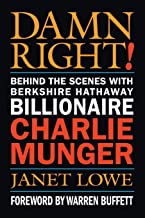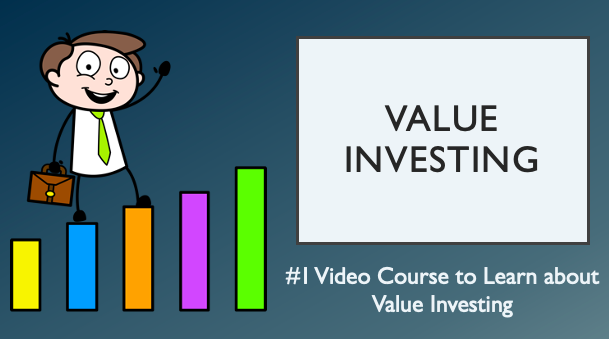Book Summary of Damn Right
by Janet Lowe

What is this book about?
The book "Damn Right: Behind the Scenes with Berkshire Hathaway Billionaire Charlie Munger" by Janet Lowe is a biography of Charlie Munger, the vice-chairman of Berkshire Hathaway and Warren Buffett's longtime business partner. It delves into Munger's life, exploring his upbringing, career, and personal philosophies. The book highlights his contributions to the success of Berkshire Hathaway, his investment strategies, his ethical approach to business, and his influence on Buffett. It also provides insights into Munger's personal life, his family, and his philanthropic efforts.
Who should read the book?
This book is ideal for individuals interested in finance, investing, and business, particularly those who admire Warren Buffett and want to learn more about the man who has been instrumental in shaping Buffett's approach. It is also suitable for readers who appreciate biographies of influential business leaders, as well as anyone interested in ethical business practices and the application of multidisciplinary thinking in decision-making.
10 Big Ideas from the Book:
-
Multidisciplinary Thinking: Munger emphasizes the importance of understanding multiple disciplines (economics, psychology, history, etc.) to make better decisions.
-
The Power of Compounding: Munger, like Buffett, believes in the profound impact of compound interest over time, both in finances and personal growth.
-
Ethical Business Practices: Munger advocates for high ethical standards in business, arguing that integrity and honesty are crucial for long-term success.
-
Learning from Mistakes: Munger encourages learning from both personal mistakes and the mistakes of others to avoid repeating them.
-
Avoiding Envy: Munger considers envy a destructive emotion that produces nothing positive and should be avoided.
-
Long-Term Thinking: Munger believes in focusing on long-term gains rather than short-term profits, which aligns with his and Buffett's investment philosophy.
-
Inversion Technique: He often uses the inversion method in problem-solving, which involves thinking backward by considering what you want to avoid.
-
Rationality: Munger values rational thinking above all, urging people to keep emotions in check when making decisions.
-
Importance of Reading: Munger is a voracious reader and believes that continuous learning through reading is essential for success.
-
Focus on the Inner Scorecard: Munger advises judging oneself by an inner scorecard (personal values and standards) rather than external validation from others.
Key Insights and Lessons
-
Early Life and Education:
- Munger was born on January 1, 1924, in Omaha, Nebraska, to Alfred C. Munger, a respected attorney, and Florence Munger. His upbringing in a family that valued education and ethical behavior significantly influenced his later life.
- He attended Harvard Law School, graduating in 1948, which laid the foundation for his analytical and methodical approach to business and investing.
-
Professional Journey:
- Munger started his career as a lawyer and co-founded the law firm Munger, Tolles & Olson LLP in Los Angeles. Despite his success in law, he shifted his focus to investing and business management, driven by his desire for financial independence.
- He became a key figure in several companies, including Wesco Financial Corporation, which eventually became a subsidiary of Berkshire Hathaway.
-
Partnership with Warren Buffett:
- Munger and Buffett first met in 1959 and quickly developed a close professional and personal relationship. Their partnership at Berkshire Hathaway began in the early 1970s.
- Munger's influence on Buffett is profound; he introduced the idea of investing in high-quality companies at reasonable prices, shifting away from Buffett's earlier focus on "cigar-butt" investing (buying undervalued companies with low prospects).
-
Investment Philosophy:
- Munger is known for his multidisciplinary approach to investing, drawing on principles from psychology, history, and economics to inform his decisions. He emphasizes the importance of understanding a business's intrinsic value and the long-term impact of decisions.
- He advocates for "inversion," a mental model where one thinks backward to identify and avoid potential problems.
-
Key Deals and Business Strategies:
- The book discusses several significant deals and business decisions involving Munger, such as the acquisition of See’s Candy, which Munger describes as one of the best investments he and Buffett ever made.
- Munger also played a crucial role in the expansion and success of Berkshire Hathaway, including the diversification into various industries like insurance, retail, and manufacturing.
-
Personal Challenges and Resilience:
- Munger faced significant personal challenges, including the tragic death of his son and losing sight in one eye. Despite these hardships, he remained resilient and focused on his goals.
- His personal life is marked by a strong sense of duty to his family and community, with philanthropy playing a significant role in his later years.
-
Philanthropy and Legacy:
- Munger is deeply involved in philanthropic efforts, particularly in education and medical research. His contributions reflect his belief in the importance of long-term thinking and ethical behavior.
- His legacy is not just in his wealth but in the principles and values he has championed throughout his life.
Relevant Numbers
- Munger's net worth was estimated at over $1.2 billion in 1998.
- His influence helped Berkshire Hathaway grow into a multinational conglomerate with a market capitalization of over $300 billion by the early 2000s.
- He has held a 30+ year partnership with Warren Buffett, one of the longest and most successful in the business world.
Key Things to Remember
- Multidisciplinary Thinking: Munger's success is rooted in his ability to draw insights from a wide range of disciplines.
- Ethical Behavior: He consistently emphasizes the importance of integrity in both personal and professional life.
- Long-Term Focus: Munger advocates for thinking long-term in investments and life decisions, avoiding short-term temptations.
- Resilience: Despite personal tragedies, Munger's resilience has been a defining feature of his character.
This book provides a comprehensive look at not only the professional accomplishments of Charlie Munger but also the personal values and intellectual principles that have guided his life.
Which other books are used as references?
Munger's reading list, which he shared with the author, includes several key books that he considers essential. Notably mentioned are:
- "The Selfish Gene" by Richard Dawkins: A book that profoundly influenced Munger's understanding of human behavior and evolution.
Browse Summaries of Top Investing books!
You may also like the below Video Courses



